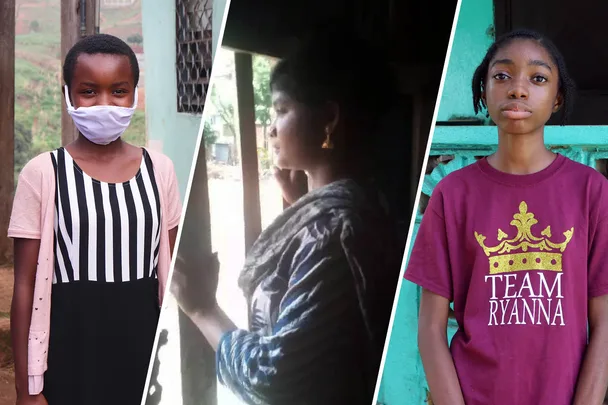We already know the COVID-19 pandemic is going to have devastating impacts worldwide, seeing an increase in domestic violence, deep-seated health and socioeconomic inequity for Indigenous communities, on top of the economic decline set to affect the globe for years to come. A new report from Plan International Australia looks at the devastating secondary impacts girls are facing worldwide – and how they’re coping.
The Living Under Lockdown: Girls and COVID-19 report is a review of evidence into how emergencies and humanitarian crises affect girls differently and includes interviews with girls specifically impacted by the current health crisis. Researchers analysed previous crises, including the Ebola epidemic, hunger and conflict in South Sudan and the Lake Chad Basin, the Rohingya refugee crisis and the refugee camps in Beirut, Lebanon.
They found girls living in a COVID-19 world are more at risk of being pulled out of school permanently, permanent unemployment, abuse and violence, food shortages and extreme poverty, increased pregnancy and child marriage and a greater chance of becoming infected with the virus, due to traditional care-giving gender roles.
CEO of Plan International Australia, Susanne Legena, said these alarming ripple effects threaten to undo decades of gains in girls’ rights. “Of course we are extremely worried about the immediate health impact of COVID-19. But we know from our experience in emergencies, that there will be a secondary, longer-lasting and potentially more devastating fallout as a result of lock-downs that have been necessary to slow the spread,” Ms Legena said in a statement.
“The economic, social and psychological impact on those already vulnerable will be huge. Many may never recover,” she continued. “Without a concerted effort to respond to the specific risks to girls, we face a terrible reality that many of the gains in gender equality and girls’ rights we’ve made over the past few decades will vanish.
“Many governments have quite rightly responded quickly to the spread of COVID-19, with containment measures and lockdowns now affecting at least half the world’s population. But the consequences of these measures will fundamentally affect the world in which girls grow up.”
Plan International is responding to COVID-19 in at least 50 countries, with a focus on protecting and supporting girls and advocating for girls to be included in immediate and long-term responses to the virus.“We want girls to know that we are listening to them. We will ensure their voices and lobby for governments to ensure they take a gendered response to this pandemic.”
Plan International Australia also gave voice to the girls affected, asking them how they’re coping and dealing with the current global crisis. Their stories differ, but fundamentally they all, like everyone else, seeking a better future. Hear their stories below:
Praise, 13, Liberia
“I am afraid that health workers might not find the cure for COVID-19 and the world will continue to be locked down. It will delay girls’ education, and many may not be able to graduate as planned.”
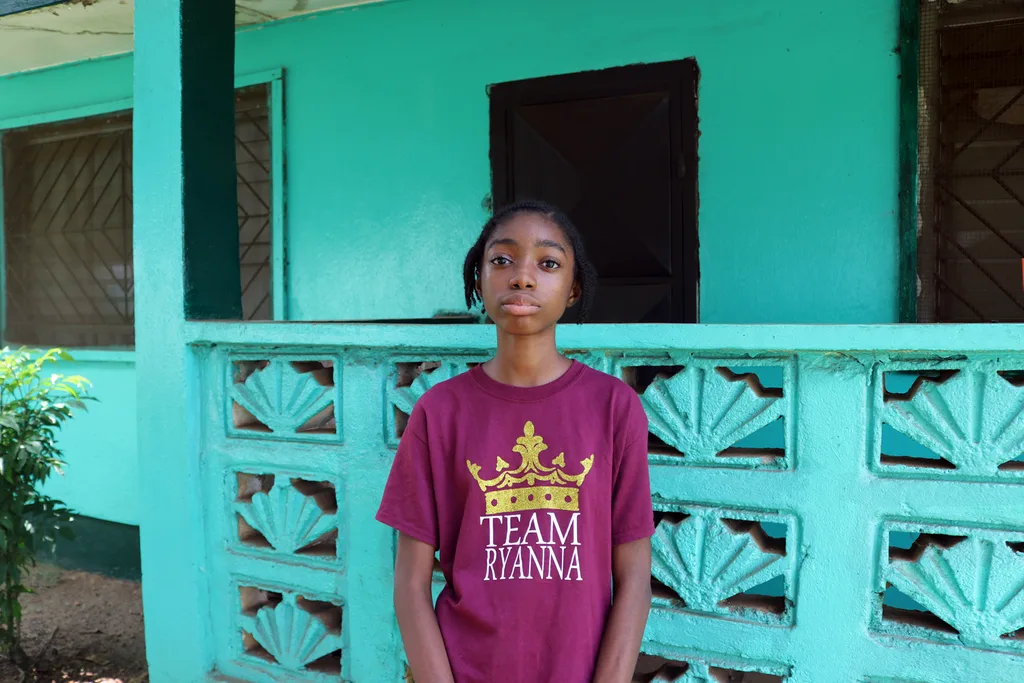
Meghla, 16, Bangladesh
“These days, getting or extending support to someone is very difficult due to social distancing. I heard about a child marriage incident recently. I tried to stop it and informed the local authorities, however, unfortunately, they couldn’t respond in time due to lockdown”
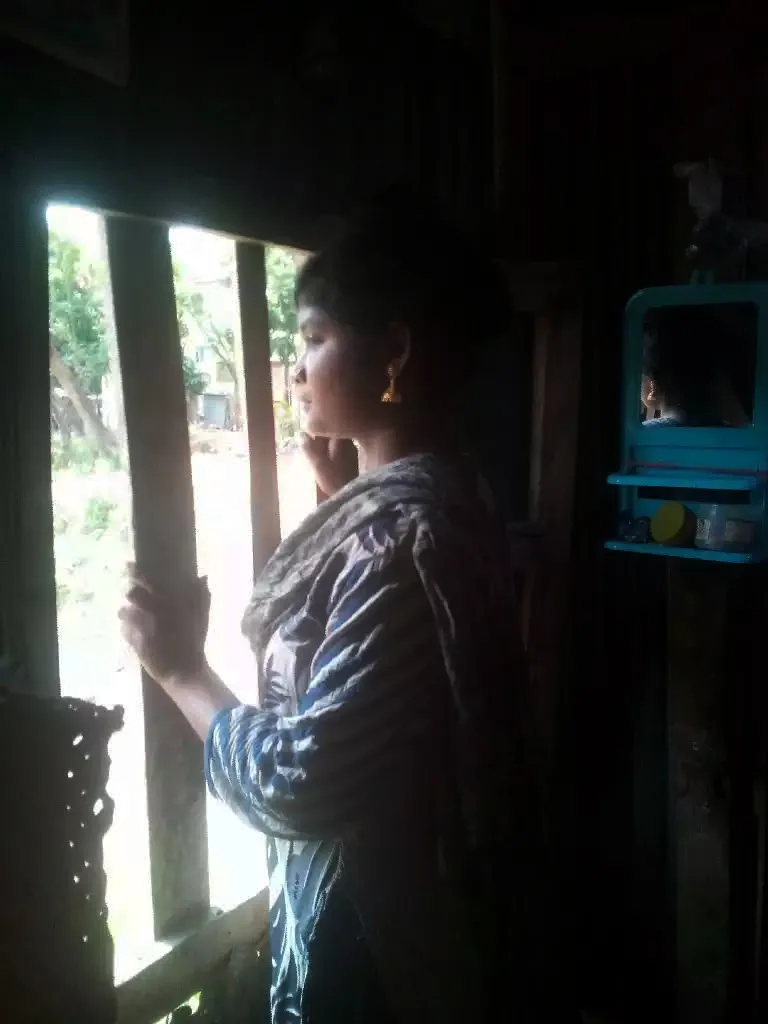
Sirri, 12, Cameroon
“If I had access to technology, I could ask my teacher to send me assignments to do and keep my mind active. My mother doesn’t have a smartphone. My father does. But using the smartphone means spending money to buy mobile data, which is expensive for now especially because my mother’s business is not as profitable as before.”
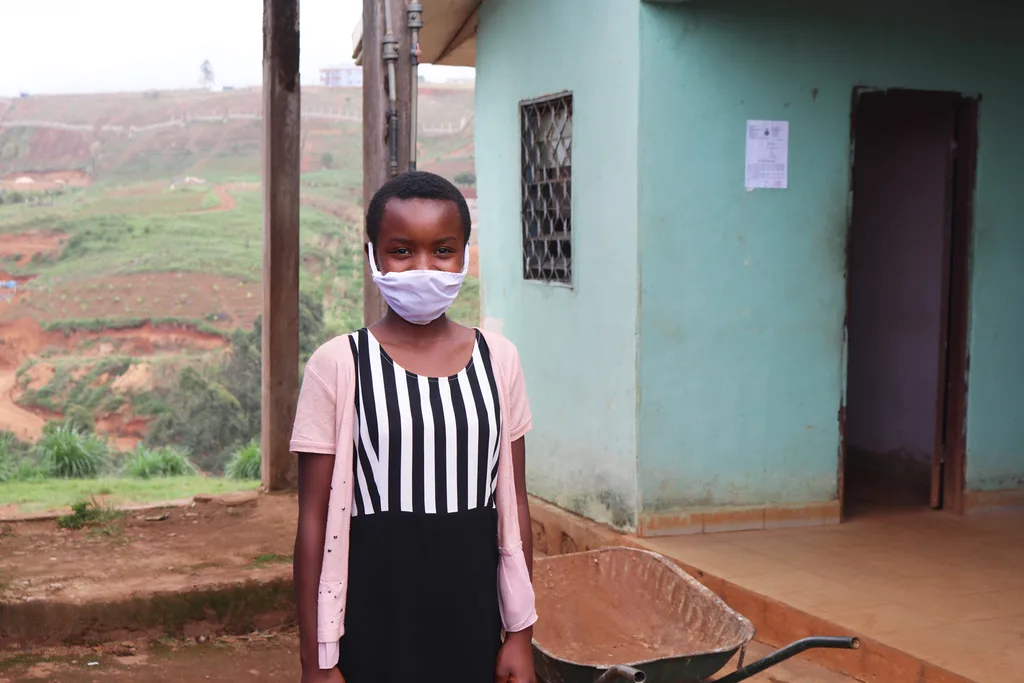
Koumba, 15, Mali
“Despite the government’s instructions to make these products accessible to the population, only the privileged few have the possibility of buying them.”
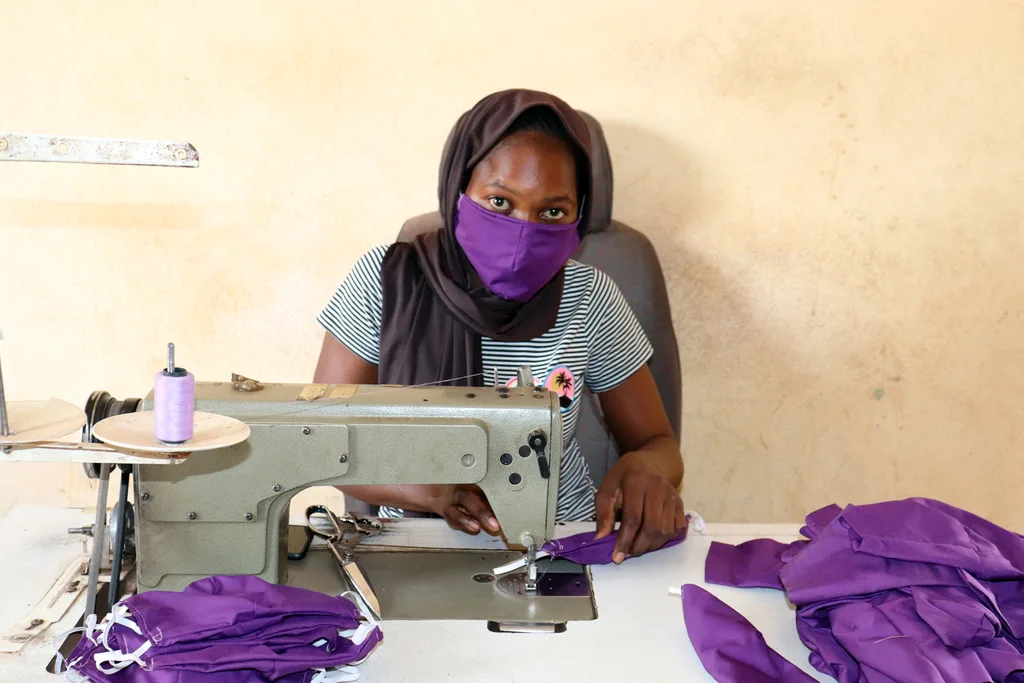
Janet, 14, Liberia
“My fear with this virus in Liberia is that women will really suffer. We will suffer over food. Men will abuse us. Because if I don’t have food and a boy has food, if I ask him for help, he will ask me for sex before he gives me some. This is the suffering I am talking about.”
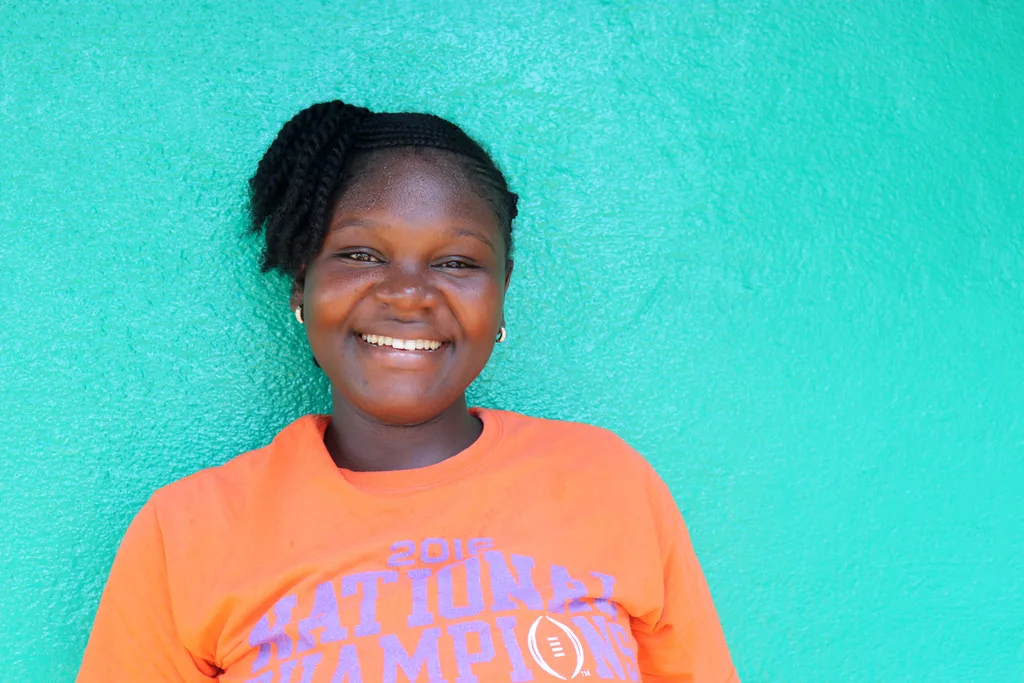
Amelia, 19, Guatemala
“My life has changed in positive and negative ways. I’m always out of my home and I miss it! In my community authorities are disinfecting people who come in or out. But I am able to help with the house chores and support my brothers and sisters to study so they learn to read and write. I worry how this pandemic is affecting so many people and families, parents who do not have a job and don’t receive a deserved salary. To be honest my family is one of them – my father, nor me and nobody in my family have a stable job. We support each other by dividing up the household chores and going out to sell our products. That’s how we survive.”
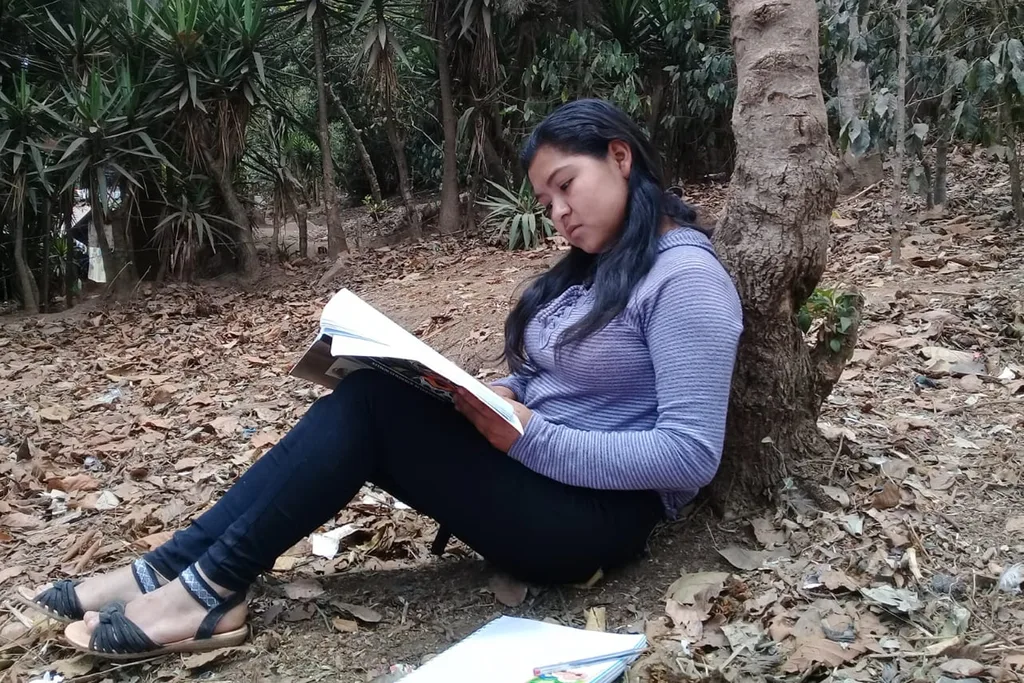
Aimee, 24, Togo
“My younger brother arrives with my wheelchair. For him to help me out he must carry me. As a person living with a disability, I always need someone to help me out in various circumstances. They have to help me move around, eat and do many things. I don’t know where my helpers go, what they touch or if they wash their hands but I need their help. I don’t have a choice. To get water and food I have to get in touch with someone. I don’t know if that person is infected or not. If they have the virus it’s very easy to pass it on to me.”
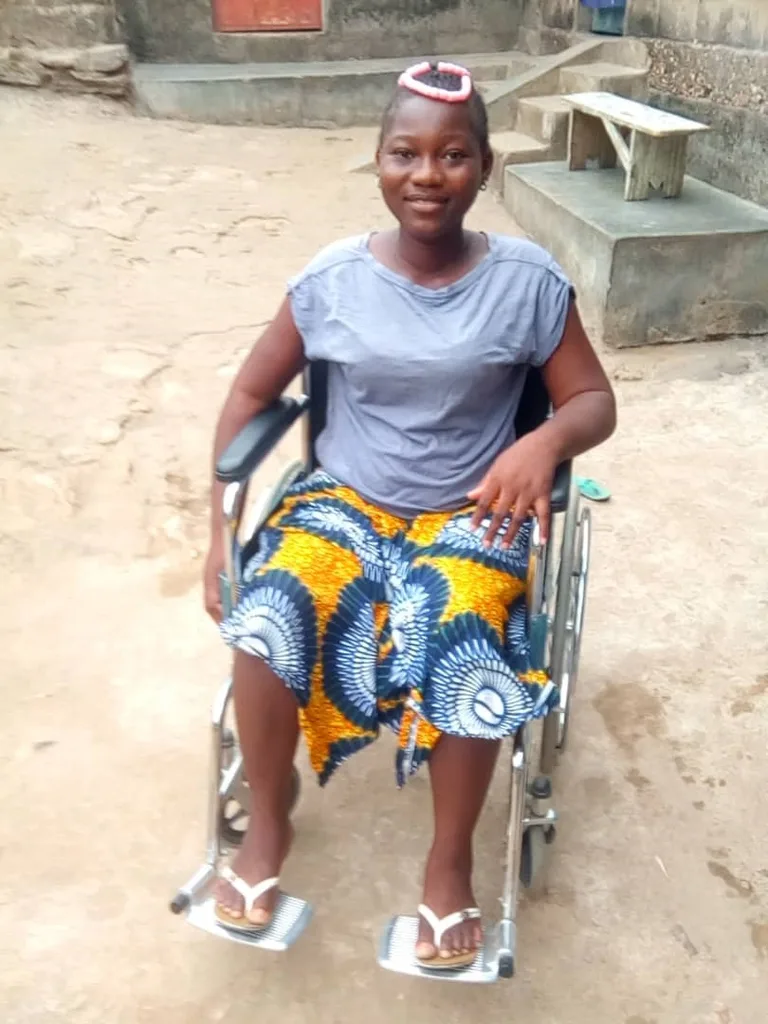
To learn more head to Plan International Australia.
